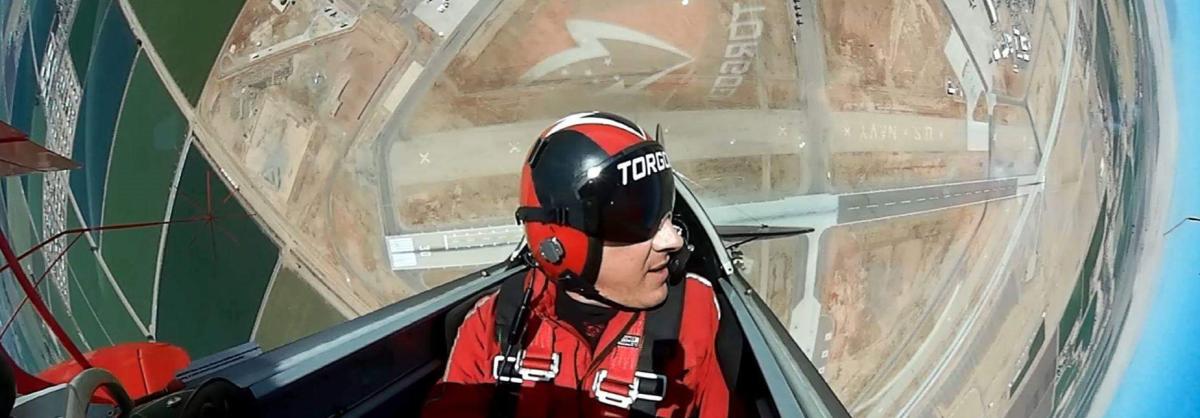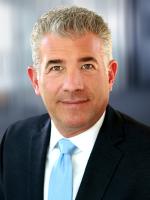Isenberg Graduate Welcomes Risk Taking in the Workplace and Beyond
December 20, 2018

For Isenberg Online MBA graduate Spencer Suderman ’15, assessing risk is serious business. A principal consultant with the high-profile consulting firm ISG (Information Services Group), Spencer helps large corporate clients evaluate and manage risk in their key IT strategies and decisions. Beyond the workplace, he navigates risk in a very different domain: The Isenberg graduate is a world record‒holding aerobatics pilot. In 2016, he flew his Sunbird S-1x biplane to an altitude of 24,500 feet, where he turned the plane upside-down and entered a flat spin. After spiraling all the way down to 2,000 feet, he initiated the plane’s recovery, returning it to level, right-side-up flight at 1,200 feet. It was a new world record comprising 98 inverted flat spins.
The higher you fly, the more manageable your risks become, Spencer notes. If you encounter trouble as a pilot, that extra altitude will give you more time to assess and execute plane- and life-saving maneuvers. Should those measures fail, you might still have the leeway to parachute out of harm’s way. Closer-to-the-ground challenges at air shows are more dangerous. “Those risks are off the charts,” he remarks.
Big Picture Thinking

The Isenberg alumnus periodically views risk through the lens of former Secretary of Defense Donald Rumsfeld’s fourfold framework—i.e., there are unknown unknowns, known unknowns, unknown knowns, and known knowns. The optimal outcome, of course, is to move from that quartet’s first to its last alternative. But that may not be in the cards. Still, moving up a notch from unknown unknowns to known unknowns can confer a powerful edge. The bottom line: “In both aerobatics and business, I want to know what the competition doesn’t know.”
As a consultant, Spencer focuses on his clients’ IT decisions, including their fit with overall corporate strategies. One prominent arena, he notes, involves in-house versus outsourced IT investments. Consider, for example, a client’s decision to outsource networking. “That often makes sense, say, for an insurance company, because IT isn’t its core business or competency,” he says. “So I help them determine value and risk in decisions to outsource or not to outsource; to retain a provider or to hire a new one.” In a similar vein, he advises clients on retaining or outsourcing call and data centers. Should a client outsource incrementally or go further? These days, I’m often less conservative,” he confesses.
A Technologist Turns to Isenberg
“I’ve always been an avid technologist,” Spencer emphasizes. Before joining his present employer, he held a variety of technology-focused posts: Data Center Strategist & Principal Network Architect with The Walt Disney Company, Director of Systems Engineering with Zones, Inc. (an IT and engineering consultancy), and earlier positions involving systems engineering and solutions architecture. “Along with my love for technology, I’ve understood business reasoning—my undergraduate degree was in business.”
So why get an Online MBA from Isenberg? “I wanted to put everything together, to get the big picture,” he remarks. And taking time away from work wasn’t an option: “I have a family that includes three children, two dogs, and an airplane,” he says, adding that the flexibility of digital learning made it possible for him to squeeze in his studies during downtime at work (instead of checking Facebook or shopping online) as well as during focused evening hours.
To that end, Spencer took courses in accounting, HR, technology, finance, and other business subjects. “But it was the capstone business strategy course that tied all of those verticals together. And it did so via casework that demonstrated strategies and nuances in different industries. In other words, the MBA has helped me to better connect my consulting work to overall business objectives. That, of course, includes risk—in business and beyond.”